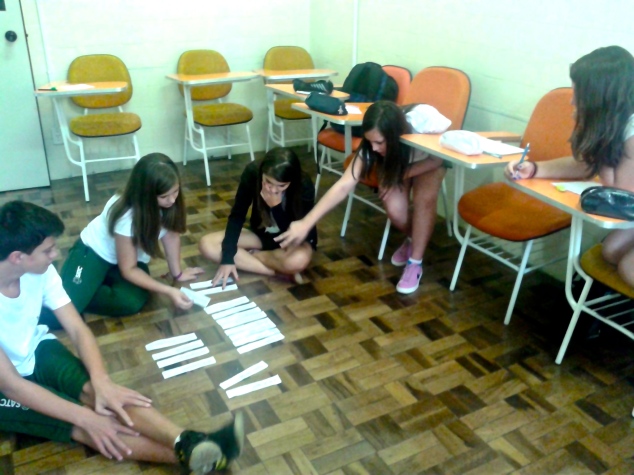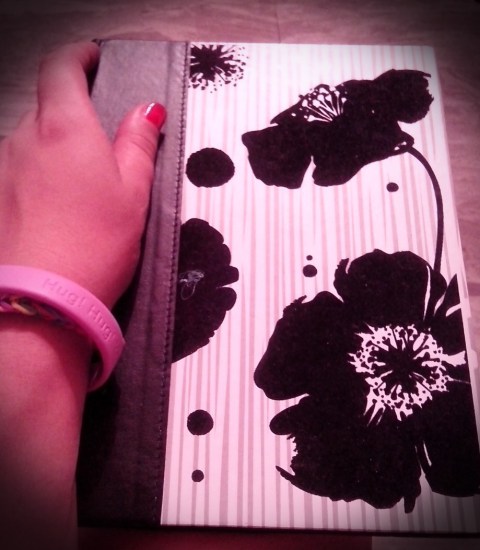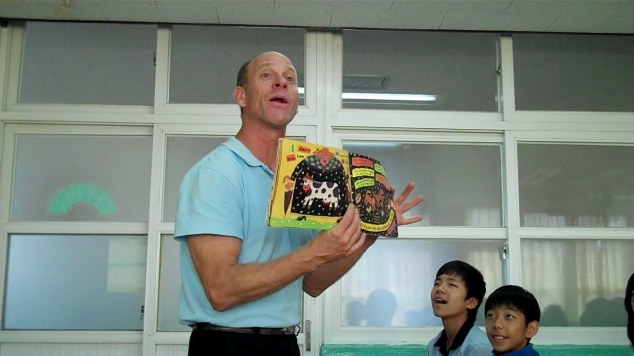Have you ever wondered how some teachers seem to do it all? Not only do they care for their students, but they also put their heart and soul into their relationships with friends and families. Fabiana Casella is this type of teacher. Seeing the work she does with her online teaching communities (visit her blog, The Goal-Minded, Globally Connected Educator, to see what I mean), I wondered how a teacher who gives so much also manages to give to herself. I am grateful that Fabiana generously offered to share her story and strategies on the Teachers Talking About Self-compassion series for all of us to learn from.

Fabiana’s Red Thumb for Love
I am from Buenos Aires, Argentina. I´ve been teaching English as a foreign language for more than twenty years plus the six years I taught English as a second language and Spanish in the United States. I personally think there are no coincidences in life. I believe there is something superior to us that leads us to where we best fit, so I would like to share some aspects of how I moved between Argentina and the United States, and how this relates to my story of self-compassion.
In 2001 there was a big economical change in Argentina but my family and I, especially my husband, had started to feel the transition a couple of years before that specific date. There are certain moments in your life when you have to make decisions and think what is best for you, so that was why I applied to teach at a high school in the United States and got accepted. My husband, my only son back then (Martín, 4), and I moved to North Carolina, USA. We lived there only for three years as I was an exchange teacher. Then, after the permit to work expired, we moved back to our country. But soon after that, I was offered the job again, and we moved back to the American South again! Hurray! We had had in mind to stay longer than the three years permitted by the exchange program to take advantage of the kind of life and benefit for our son, who was already bilingual and doing so well at school. I was so grateful to be able to offer him this life.
I have to admit that that was a turning point in our lives, especially in my own life as a person and as an educator. I have never realized that what I was experiencing was emotionally related to “self-compassion”. I had obviously felt it but never thought so deeply about the fact that being compassionate about others as well as myself would bring me so much self-reflection and inner peace. As an educator who had been trained in one country, and then to teach in another culture, I had to adapt my thinking, my way of teaching and… should I say almost everything as a world citizen and international educator to succeed? I am not so sure if success is the right word to describe my experience, but maybe victorious is more suitable. I made good friends and had wonderful students who taught me that although life is not the same around the world, living and dying happens everywhere. In this way my mind and my eyes were more ready to think and see beyond that very boundary that I had been immersed in before. Reflecting after my classes and talking to my fellow teachers, as well as administrators, was absolutely enriching to my heart.
Have I learned enough? Definitely not! Have I changed my way of thinking and seeing things? Absolutely, yes!
Since then, I have been trying to make connections and keep in touch with the international community of the best educators and thanks to the Internet, I was able to do so. That was a blessing. That was what helped me overcome the isolation I felt when I came back to my life in my home country. Believe it or not, staying connected helped me to re-build myself and find another way of seeing my life as a teacher: I try to blog, interact and keep on learning on a daily basis. Moving out of the country had its purpose in my life and now I understand, thanks to the faith that guides me day and night, I am back for a different reason. I would have never started blogging and sharing if I had remained in the same place all my life.
By giving I feel I get more and more everyday. As I always say and fully believe (as a music lover the lyrics of this song always inspire me):
… in the end, the love you take is equal to the love you make.









